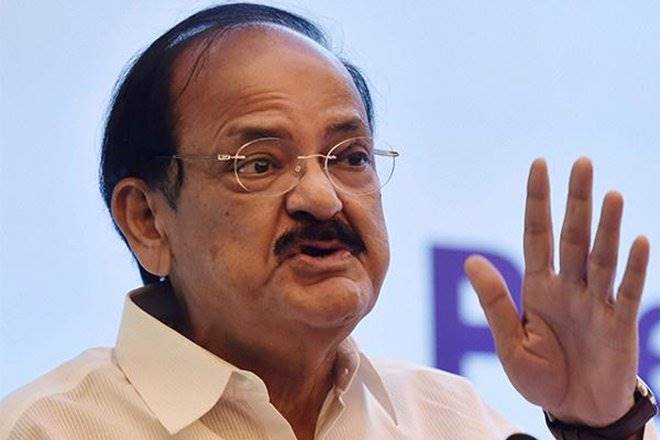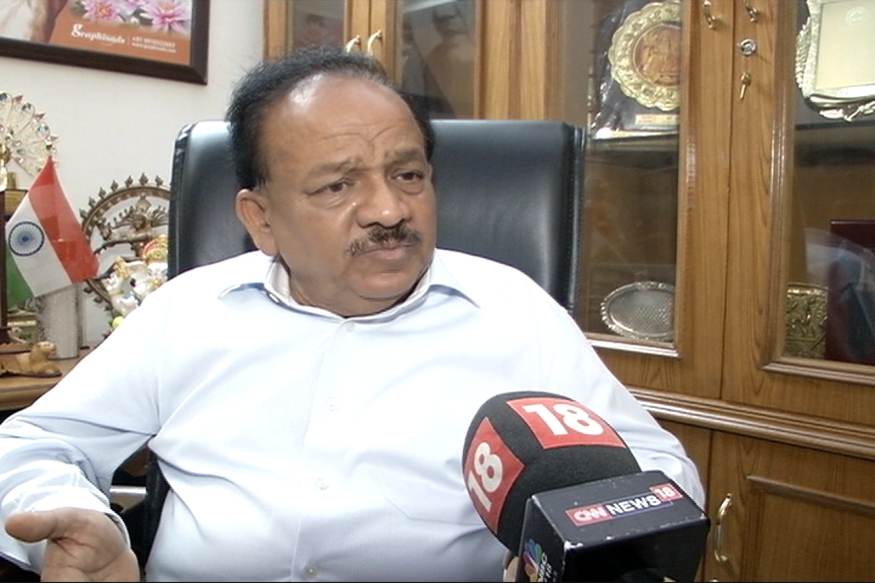
The Vice President of India, Shri M. Venkaiah Naidu has called for stepping up indigenous production of defense equipment under the ‘Make in India’ programme.
Delivering the Valedictory Address at the First-Ever Foundation Course for Military Engineer Services Probationers, in Hyderabad today, Shri Naidu stressed the need for reducing import of defense equipment.
Urging the probationers to constantly upgrade their skills and knowledge, the Vice President emphasized the importance of regular training for officers and professionals at various levels to keep abreast of the latest developments.
Shri Naidu told the probationers to learn the best practices within and outside India, from both the private as well as the public sector, and strive to reform the procedures and systems for producing outstanding results.
Saying that providing cost-effective and time-bound development of infrastructure was the need of the hour, the Vice President advised the probationers to spend time in villages and understand the problems and aspirations of people in rural areas. He told them understand the needs of the marginalized sections of the society and get a firsthand experience of service delivery in remote areas.
Shri Naidu told the trained officers that they have a great opportunity to contribute significantly towards disaster mitigation, relief operations, public infrastructure development and nation-building at large.
The Vice President wanted the probationers to always maintain a high-level of integrity, commitment, transparency and accountability.
Shri Naidu said that Military Engineer Service has been playing a crucial role in enabling the Indian Armed Forces, Indian Ordnance Factories, DRDO and the Indian Coast Guard in achieving their cherished goals. He asked them to work together in unison, complementing and supporting each other to attain higher levels of productivity.
Shri Naidu complimented Dr. MCR HRD Institute for conducting the foundation course for MES probationers. He appreciated the institute for designing a comprehensive approach towards training, which included outdoor, extra-curricular, and co-curricular activities to enable the MES Probationers develop a broader vision and emerge as productive members of the Military Engineer Services.
The Director General, MCR HRD Institute, Shri B.P. Acharya, the DG (Personnel) MES, Shri J.R. Garg, the Director (IT), Telangana Government, Smt. A. Sridevi and 63 Group A Officers belonging to Military Engineer Services from 13 States from across the country were present.
Following is the text of Vice President’s address:
“I am happy to be interacting with participants of the First-Ever Foundation Course for Military Engineer Services Probationers Conducted by the Dr MCR HRD Institute of the Government of Telangana.
At the outset, I congratulate the 63 Group A Officers, who represent 13 States from across the country, for having made it to one of the most prestigious and promising careers that this country offers, that is, the Military Engineer Services, which is one of the oldest (constituted on 26 Sept 1923) and the largest Government defense infrastructure development agencies in India.
I was told that the personnel belonging to this Indian Military Engineer Services (MES) are mainly employed in the engineering and construction works for the Indian Armed Forces including the Indian Army, Indian Air Force, Indian Navy, Indian Ordnance Factories, DRDO, and the Indian Coast Guard.
Besides conventional building construction for the Armed Forces, Military Engineer Services is also involved in the execution of sophisticated and complex projects like airfields, buildings, roads, sports complex, runways, hangars, dockyards, wharves and other marine structures.
I was told that MES is a military organization but has both Army and the civilian component of officers and other subordinate staff. This combination makes your organization unique and very important.
MES is responsible for creating the strategic and the operational infrastructure as also the administrative habitat and its subsequent maintenance for all three Services and associated organizations of the Ministry of Defense.
Trained officers like you have a great opportunity to contribute significantly towards disaster mitigation, relief operations, public infrastructure development and nation-building at large.
I am glad to know MES has been undertaking several innovative measures in the field of energy conversation, use of renewable energy and green technology, and solar energy power projects in various parts of the country, as part of its environmental-friendly initiatives.
It gives me immense pleasure to note that in addition to the 14-week Foundation Course at Dr. MCR HRD Institute, the MES Probationers are required to undergo another 26 weeks training at College of Military Engineering, National Institute of Construction Management and Research (NICMAR), National Academy of Defence Financial Management (NADFM), Bureau of Parliamentary Studies and Training, among others.
However, training should not be a one-off affair. Training at regular intervals is essential for officers and others to upgrade their skills, knowledge domains and to keep abreast of the latest developments.
I must compliment Dr. MCR HRD Institute for designing a comprehensive approach towards training, which included outdoor, extra-curricular, and co-curricular activities to enable the MES Probationers develop a broader vision and emerge as productive members of the Military Engineer Services.
I hope, all the MES Probationers would agree with me that Trekking in the Munnar, Kerala not only exposed them to the natural grandeur of the hills and forests but also provided them with an opportunity to understand leadership and group dynamics.
Equally important must have been the ‘Village Visit’ as it must have opened up new vistas of learning and gave you an exposure to unique problems, felt-needs, and priorities of rural India.
Understanding the needs of the marginalized sections of the society, getting a firsthand experience of service delivery in remote areas would help you to plan better when you go back to the drawing board.
Over the years, the Military Engineer Service has played a crucial role in enabling the Indian Armed Forces, Indian Ordnance Factories, DRDO and the Indian Coast Guard in achieving their cherished goals.
However, the profession of engineers, especially in the military scenario has been undergoing mind-boggling changes. You must, therefore, keep updating your professional profile in order to ensure that it is in accordance with the dynamic requirements of the Indian armed forces.
You must learn from the best practices within and outside India, from both the private as well as the public sector, and strive to reform the procedures and systems for producing outstanding results.
However, it is observed that many of the officers work in their watertight compartments. It is, therefore, advisable that they work together in unison, complementing and supporting each other with their specific domain experiences in order to attain higher levels of productivity.
Mere changing the systems, procedures, and organization the structure is not enough to deliver outcomes. There should be corresponding changes in your thinking and functioning. Currently, the defense infrastructure is moving towards modernization in a big way. In addition, the Armed Forces expect the latest technologies to be adopted for infrastructure development.
Hence, cost-effective and time-bound development of infrastructure is the need of the hour. This requires the MES professionals to continuously update knowledge and use cutting edge technologies. I also call upon the probationers to always maintain a high-level of integrity, commitment, transparency and accountability.
I would like to take this opportunity to compliment Dr. MCR HRD Institute for conducting the foundation course for MES probationers.
";

